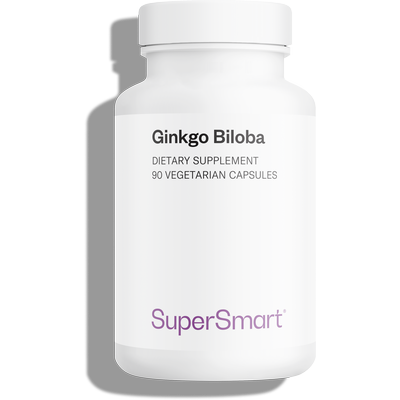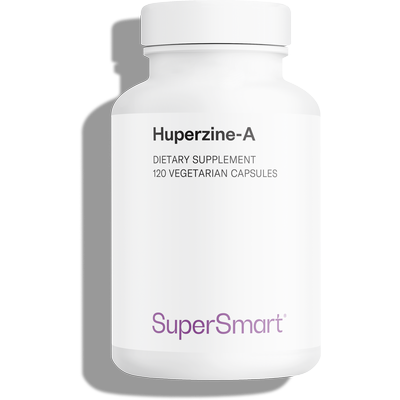Welcome
> Alzheimer’s disease: chance discovery...
21-02-2018
Alzheimer’s disease: chance discovery of new therapeutic possibility
 The harsh reality is that there is currently no cure for Alzheimer’s disease, a fact that’s difficult to accept for the 850,000 people in the UK affected by it. However, this doesn’t mean there’s no hope: scientists are currently investigating a number of avenues to try and stop the disease’s pathological process, one of which seems to have had some success. If results are confirmed, a drug originally aimed at diabetes may be able to treat Alzheimer’s disease and decelerate loss of memory...
The harsh reality is that there is currently no cure for Alzheimer’s disease, a fact that’s difficult to accept for the 850,000 people in the UK affected by it. However, this doesn’t mean there’s no hope: scientists are currently investigating a number of avenues to try and stop the disease’s pathological process, one of which seems to have had some success. If results are confirmed, a drug originally aimed at diabetes may be able to treat Alzheimer’s disease and decelerate loss of memory...
Alzheimer’s disease set to reach epidemic proportions
Contrary to widespread belief, Alzheimer’s disease is not the inevitable consequence of ageing. It’s a form of pathological dementia which develops gradually, beginning by affecting short-term memory. According to the Alzheimer’s Society, incidence of this devastating disease could rise astronomically over the next 30 years, while there has been little in the way of breakthroughs in the last 15 years. Researchers have therefore adopted a new approach to tackling the problem: they are investigating whether drugs developed for other diseases could also offer benefits for Alzheimer’s.
When tested on mice, a drug designed to treat type 2 diabetes was found to produce improved capacity for learning and memorisation1. This improvement was accompanied by a reduction in the brain of the amyloid plaques associated with Alzheimer’s disease, as well as a deceleration in the loss of nerve cells. The drug may promote the production of three growth factors related to glycaemia (glucagon, GLP-1 and GIP), which could have a protective effect on nerve cell function. These are interesting findings but we first need to gain a better understanding of the link between Alzheimer’s disease and diabetes, and then reproduce these results in humans, before we can really look forward to the development of a potential treatment.
What can be done to stem the disease and combat the symptoms?
While there is as yet no cure for Alzheimer’s disease, it is possible to fight its progress and stem the decline in memory and cognitive function. There are two natural remedies which are widely documented in the scientific literature but which are unfortunately little known by the general public:
Huperzine A:
Many studies have shown that oral supplementation with huperzine A may improve memory and cognitive function in Alzheimer’s sufferers as well as in healthy people2-7, with noticeable benefits after just two to three weeks’ supplementation.Mechanism of action: huperzine A is able to cross the blood-brain barrier and increase levels of acetylcholine in various parts of the brain8-9.
Recommended dose: according to the scientific literature9, 50-200mcg, twice a day.
Ginkgo Biloba
Extensive research has shown that taking natural, ginkgo leaf-based supplements improves Alzheimer’s symptoms, particularly memory and speed of mental processing10-13.Mechanisms of action : the benefits of ginkgo leaf on Alzheimer’s disease are due to its positive effects on beta-amyloid proteins which induce cell death. It is also likely that they affect levels of several key neurotransmitters (chemical compounds which enable messages to be sent between neurons) 14.
Recommended dose : 120-240mg a day, divided into two or three doses, according to the scientific literature15.
References
1. Jingjing Tai, Weizhen Liu, Yanwei Li, Lin Li, Christian Hölscher. Neuroprotective effects of a triple GLP-1/GIP/glucagon receptor agonist in the APP/PS1 transgenic mouse model of Alzheimer's disease. Brain Research, 2018; 1678: 64 DOI: 10.1016/j.brainres.2017.10.012
2. Xu SS, Gao ZX, Weng Z, et al. Efficacy of tablet huperzine-A on memory, cognition, and behavior in Alzheimer's disease. Zhongguo Yao Li Xue Bao 1995;16:391-5.
3. Zhang RW, Tang XC, Han YY, et al. [Drug evaluation of huperzine A in the treatment of senile memory disorders]. Chung Kuo Yao Li Hsueh Pao 1991;12:250-2
4. Zhang SL. [Therapeutic effects of huperzine A on the aged with memory impairment]. New Drugs and Clinical Remedies 1986;5:260-2.
5. Xu SS, Cai ZY, Qu ZW, et al. Huperzine-A in capsules and tablets for treating patients with Alzheimer disease. Zhongguo Yao Li Xue Bao 1999;20:486-90.
6. Zhang, Z., Wang, X., Chen, Q., Shu, L., Wang, J., and Shan, G. [Clinical efficacy and safety of huperzine Alpha in treatment of mild to moderate Alzheimer disease, a placebo-controlled, double-blind, randomized trial]. Zhonghua Yi Xue Za Zhi 7-25-2002;82(14):941-944.
7. Xiong ZQ, Cheng DH, Tang XC. Effects of huperzine A on nucleus basalis magnocellularis lesion-induced spatial working memory deficit. Chung Kuo Yao Li Hsueh Pao 1998;19:128-32.
8. Cheng DH, Tang XC. Comparative studies of huperzine A, E2020, and tacrine on behavior and cholinesterase activities. Pharmacol Biochem Behav 1998;60:377-86v 9. Camps P, Cusack B, Mallender WD, et al. Huprine X is a novel high-affinity inhibitor of acetylcholinesterase that is of interest for treatment of Alzheimer's disease. Mol Pharmacol 2000;57:409-17.
10. Rigney U, Kimber S, Hindmarch I. The effects of acute doses of standardized Ginkgo biloba extract on memory and psychomotor performance in volunteers. Phytother Res 1999;13:408-15.
11. Canevelli M, Adali N, Kelaiditi E, Cantet C, Ousset PJ, Cesari M; ICTUS/DSA Group. Effects of Gingko biloba supplementation in Alzheimer's disease patients receiving cholinesterase inhibitors: data from the ICTUS study. Phytomedicine 2014;21(6):888-92.
12. Birks, J. and Grimley, Evans J. Ginkgo biloba for cognitive impairment and dementia. Cochrane Database Syst.Rev. 2009;(1):CD003120.
13. Zhang, S. J. and Xue, Z. Y. Effect of Western medicine therapy assisted by Ginkgo biloba tablet on vascular cognitive impairment of none dementia. Asian Pac.J Trop.Med 2012;5(8):661-664.
14. Bastianetto S, Ramassamy C, Dore S, et al. The ginkgo biloba extract (EGb 761) protects hippocampal neurons against cell death induced by beta-amyloid. Eur J Neurosci 2000;12:1882-90.
15. Le Bars PL, Katz MM, Berman N, et al. A placebo-controlled, double-blind, randomized trial of an extract of Ginkgo biloba for dementia. North American EGb Study Group. JAMA 1997;278:1327-32.
Order the nutrients mentioned in this article
© 1997-2025 Fondation pour le Libre Choix
All rights reserved
All rights reserved
Free
Thank you for visiting our site. Before you go
REGISTER WITHClub SuperSmart
And take advantage
of exclusive benefits:
of exclusive benefits:
- Free: our weekly science-based newsletter "Nutranews"
- Special offers for club members only
















